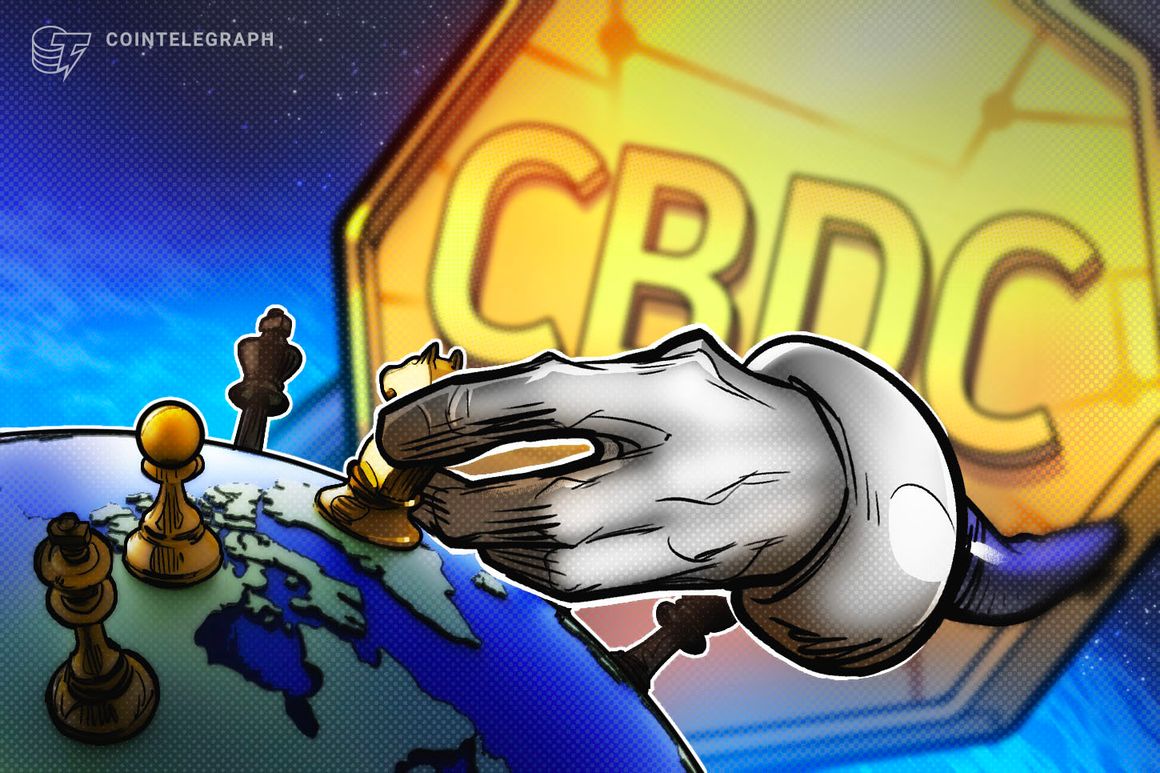Central bank digital currencies (CBDCs) have emerged as a prominent topic in the financial world. They promise elevated stability, security, efficienc

Central bank digital currencies (CBDCs) have emerged as a prominent topic in the financial world. They promise elevated stability, security, efficiency, and reduced corruption. Central banks, the International Monetary Fund, the World Economic Forum, and the World Bank tell us CBDCs are a panacea waiting to cure all that ails our financial system.
Unfortunately, those claims may not match reality, because there are two characteristics of CBDCs that their proponents don’t often mention. First, they offer an eternal trail of data about how you’re spending your money. Secondly, they are subject to “programmability,” which means political leaders will have the ability to dictate whether you’re even allowed to spend your money.
The data trail
As an electronic legal tender directly issued by central banks to your digital wallet, CBDCs will not be anonymous. The clients will have gone through identification processes matching the ones currently imposed by commercial banks. The design instances may vary in detail, but either commercial banks or the central bank or both will be privy to always knowing who holds the digitally issued fiat currency, how it is spent or transferred, to whom, and for which purpose. All this information will be stored on a central digital ledger operated by central banks.
Related: CBDCs threaten our future, so it’s time to take a stand
This system will enable central banks to assemble a ledger containing every citizen’s financial transactions, from cradle to deathbed. While proponents may dismiss concerns, governments could take an interest in citizens’ political affiliations, religious donations, mental health, and other personal details. Public health services might monitor alcohol and cigarette purchases as well as lifestyle choices for adapting insurance premiums. Even CO2 footprints of purchases may be tracked so that environmental policies can be adjusted, significantly compromising the data privacy of the citizenry.
Restrictions and programmability
The fact that retail CBDC is electronic cash held at the central bank will fundamentally change our legal ties to “our” money: With physical cash, we are always the proprietor and holder of those coins and notes in our pockets. With CBDC we will only be the proprietor of the digital cash. We will never be the holder of that money as it will be held in our name at the central bank.
The establishment are trying to force me out of the UK by closing my bank accounts.
I have been given no explanation or recourse as to why this is happening to me.
This is serious political persecution at the very highest level of our system.
If they can do it to me, they… pic.twitter.com/O4xQ1h79ub
— Nigel Farage (@Nigel_Farage) June 29, 2023
Hence, we will never have full discretionary power over that money as the middleman central bank will always remain between us and our funds. Should this middleman refuse to transact on our behalf, we will not be able to purchase or transfer any money in a world where CBDCs have eventually replaced physical cash. We will no longer be able to pull a banknote from our wallet and hand it over to whomever we want.
In a nutshell, every CBDC transaction could be subject to restrictions. Such infringements could take the form of payment constraints or transfer limits, it could block us from sending money to specific groups of people or individuals, organizations, or companies.
Vice versa it could also prevent us from receiving money. It could furthermore limit the purposes we spend our money on, for instance, spending limits or payment blocks could be imposed on alcohol, cigarettes, but also fuel, electricity, or flight tickets – as the government deems appropriate.
Defunding dissenting voices — as Canadian Prime Minister Justin Trudeau did with members of the Freedom Convoy in 2022 — would thus become far more convenient and efficient for governments. No orders would need to be issued to freeze corporate or individual accounts at banks or payment providers. Instead, the administration could cut off any protesters from their cash with the push of a button.
Related: The world could be facing a dark future thanks to CBDCs
It is even conceivable that CBDCs could be used to impose curfews or place people under house arrest. On a keystroke and in real-time, CBDCs could — for example — be programmed to function only between 6 a.m. and 6 p.m., or just within four miles of your registered home address. Effectively, President Joe Biden could use a CBDC regime to prevent a Donald Trump rally from taking place. Alternatively, Trump could prevent a Bernie Sanders assembly from happening.
But gagging opposition is not where it ends: CBDCs could also be programmed in such a way that they depreciate over time. This could prove useful for officials in times of economic decline when governments and central banks want to stoke the economy. It goes without saying that in this scenario the saver is the one left holding the…
cointelegraph.com
